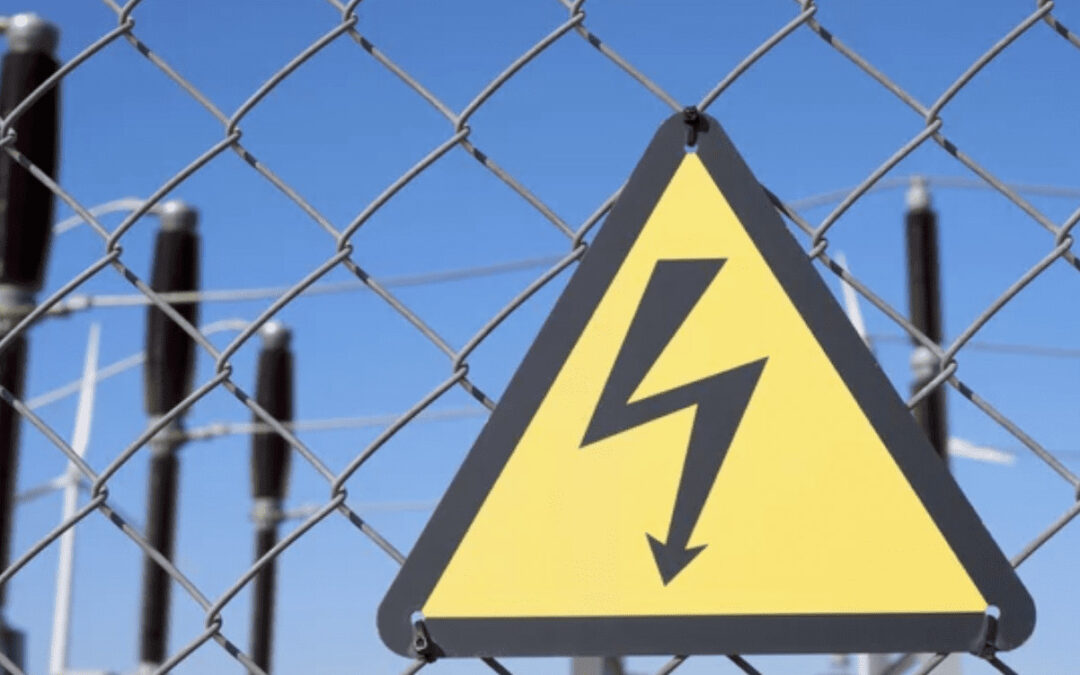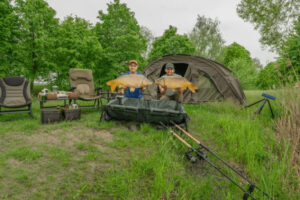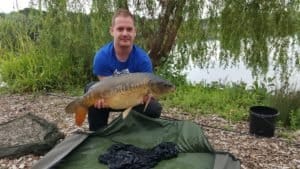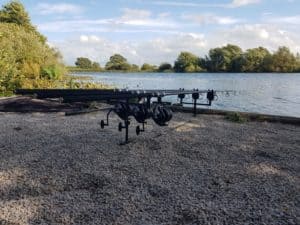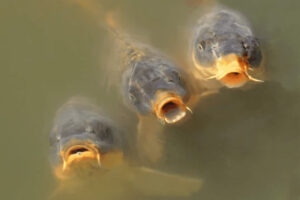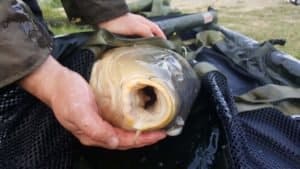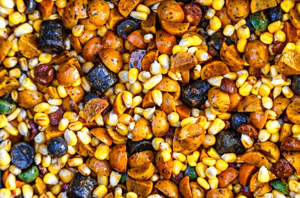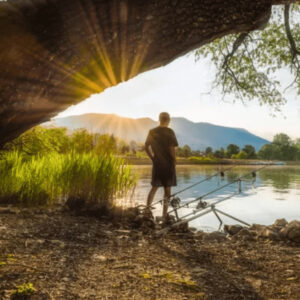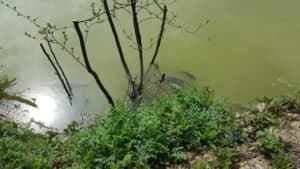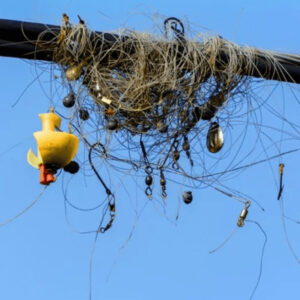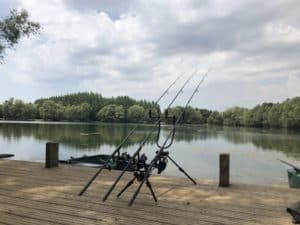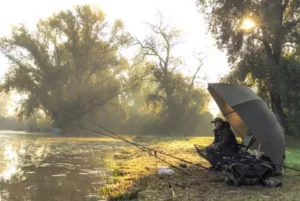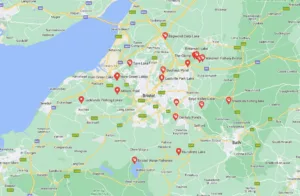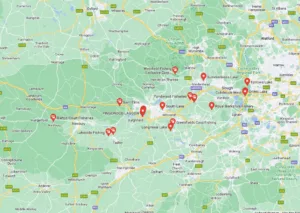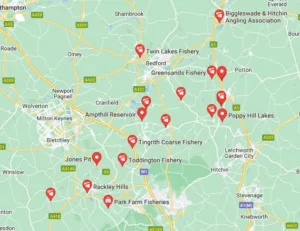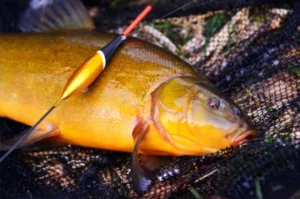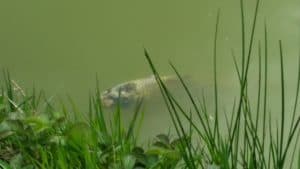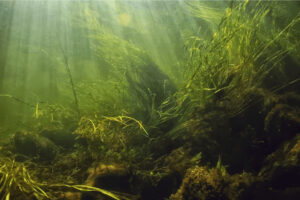In this article, we will provide some practical tips on fishing safety.
Fishing is a great way to relax, create memories, and enjoy the outdoors.
However, in order to make sure your fishing trip is both safe and enjoyable, it is important to be prepared for any situation that may arise.
We’ll cover topics such as preparing for unexpected weather changes, avoiding hypothermia, and proper waste disposal.
With the right knowledge and preparation, you can make sure your fishing trips are safe and fun! So let’s get started!
- In this article you will learn how to:
- Prepare for unexpected weather changes
- Recognize signs of hypothermia
- Respect wildlife and their habitats
- Properly dispose of waste and fishing lines
By the end of this article, you should have a better understanding of fishing safety. Let’s get started!
Always wear a life jacket when fishing from a boat
Fishing is a great way to relax and enjoy the outdoors, but it’s important to consider fishing safety when you’re out on the water.
One of the best ways to stay safe is to always wear a life jacket when fishing from a boat.
Life jackets are designed to keep your head above water if you fall overboard, and they can help you stay afloat until help arrives.
Wearing a life jacket is especially important if you’re fishing in cold water, as hypothermia can set in quickly if you’re not careful.
So next time you head out for a day of fishing, make sure to protect yourself by wearing a life jacket. It could save your life.
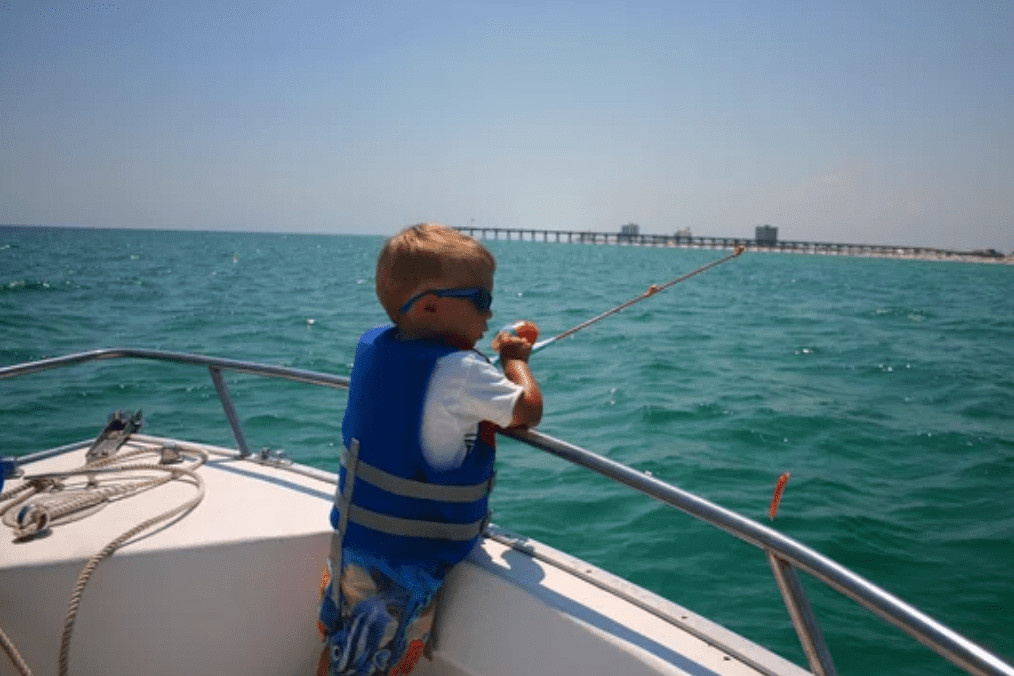
Check the weather forecast before heading out onto the water, be careful with fishing rods during lightning storms, and tie everything down during high winds
Whenever you head out onto the water, it’s always a good idea to check the weather forecast first.
That way, you can be prepared for anything that might come your way.
Be especially careful during thunderstorms – lightning can be unpredictable, and you don’t want to get struck by it.
It’s also a good idea to tie everything down during high winds. That way, nothing will get blown away or lost overboard.
By taking a few simple precautions, you can help ensure that your time on the water is safe and enjoyable.
Be aware of your surroundings and stay alert for potential hazards, powerlines can hit rods, banks can erode, and water levels can rise
It’s important to be aware of your surroundings and stay alert to potential hazards.
For example, powerlines can hit rods, banks can erode, and water levels can rise.
By being aware of these potential dangers, you can help to keep yourself and others safe while enjoying the outdoors.
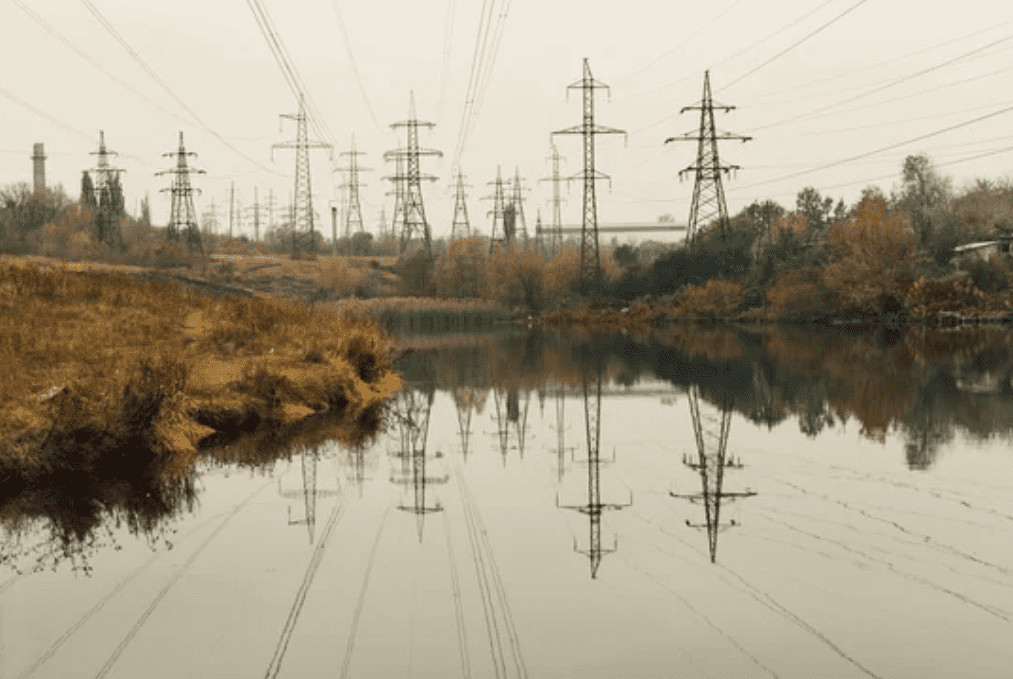
Keep a first aid kit on hand in case of accidents
It’s always a good idea to have a first aid kit on hand, just in case.
You never know when you or someone else might need it. Accidents happen all the time, and it’s always better to be prepared.
A first aid kit should contain basic items like bandages, gauze, tape, and antiseptic wipes. It’s also a good idea to include items like pain relievers and allergy medication.
If you have any special medical needs, make sure to include those items as well. By keeping a first aid kit on hand, you’ll be prepared for anything that comes your way.
Don’t leave sharp objects lying around fishing
While fishing can be a fun and relaxing activity, it’s important to be careful with sharp objects.
Barbed hooks, sharp scissors, and barbed baiting needles can all cause serious injuries if they’re not handled properly.
In addition, it’s important to avoid leaving sharp objects lying around where people are swimming or walking.
If someone steps on a sharp object, they could suffer a serious cut.
By taking a few simple precautions, everyone can enjoy a safe and enjoyable day at the lake.
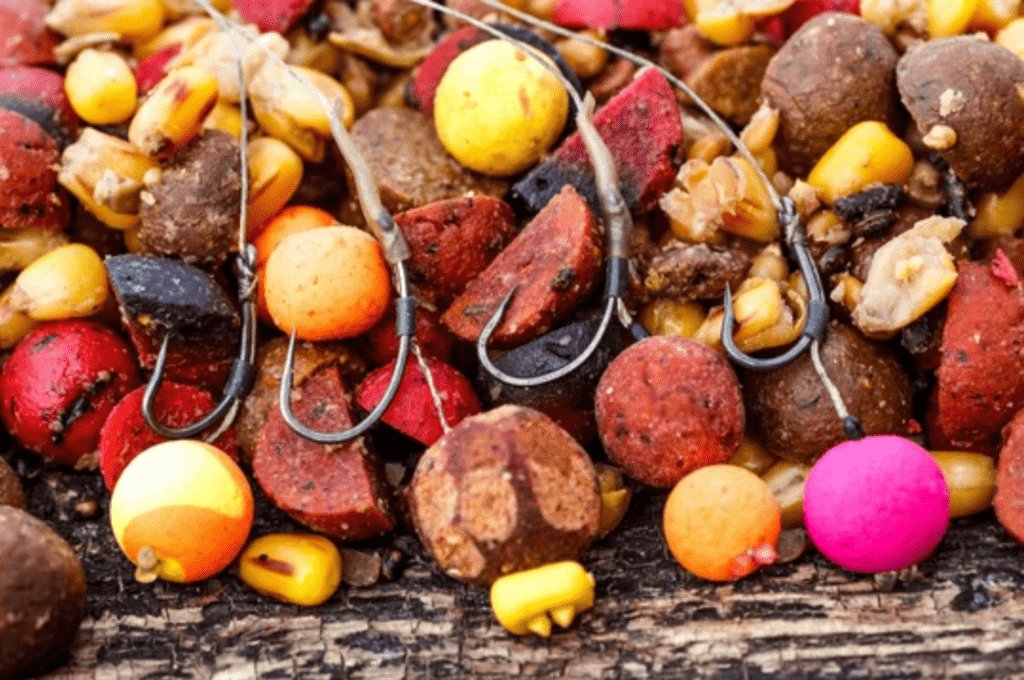
When fishing on a lake be aware of Weil’s disease, and other diseases that can be caught from wild animals – give examples
It is important to be aware of the potential dangers that can come from contact with wild animals. This has the most potential for harm when it comes to fishing safety.
Weil’s disease, for example, is a type of Leptospirosis that can be contracted from exposure to contaminated water.
Symptoms of Weil’s disease include fever, headache, and muscle pain, and in severe cases can lead to organ failure and death.
Other diseases that can be contracted from fish include Salmonella and E. coli.
While the risk of becoming ill from fishing on a lake is relatively low, it is still important to take precautions such as avoiding contact with infected water and washing your hands after handling fish.
By following these simple steps, you can help to protect yourself and your family from potential harm.
The dangers of gas and bivvy heaters whilst fishing
Gas and bivvy heaters are often used by anglers to keep warm, but using them incorrectly can lead to serious risks.
Poor ventilation when using a gas or bivvy heater can cause the build-up of carbon monoxide, which is an odourless gas that can be fatal in high concentrations.
It’s important to ensure that your heater is well-ventilated and to always turn it off when you leave the tent or bivvy area.
In addition, never use a gas or bivvy heater in an enclosed space such as a tent or bivvy, as the lack of ventilation can lead to the build-up of dangerous gases.

Other dangers and accidents that can occur when fishing
When carp fishing safety can mean the matter of life and death, it’s important to be aware of the potential dangers that come with the activity.
Drowning is a major risk when fishing from a boat or near deep water, and it can happen quickly if you don’t wear a life jacket.
Electric shocks are another hazard that can occur when handling electrical equipment like bait boats and underwater cameras.
In addition, using the wrong type of tackle or bait can cause injuries such as cuts and broken bones, so it’s important to know the basics of carp fishing before heading out on the water.
Finally, many carp anglers use barbed baiting needles which can be extremely sharp and cause serious injury if handled incorrectly.
To help avoid accidents, always wear protective clothing and keep sharp objects safely stored away.
Additional Tips for Fishing Safety
- Be aware of your surroundings at all times, such as hazardous weeds and currents.
- Always check the weather forecast before heading out.
- Keep a first aid kit on hand in case of accidents or illnesses.
- Wear appropriate clothing for the weather and activity, such as sunscreen, a hat, and non-slip shoes.
- Bring plenty of drinking water to stay hydrated.
- Never leave sharp objects like hooks or needle lying around where children or animals can reach them.
- Take regular breaks to avoid fatigue and strain.
- If fishing from a boat, always stay at least 100 feet away from other boats and docks.
- If possible, fish with a partner to increase safety.
- Be respectful of the environment when fishing: use biodegradable baits, don’t leave trash behind, and practice catch-and-release when possible.
- Check your local regulations for fishing rules and restrictions before heading out.
- Familiarise yourself with the signs of hypothermia, so you can recognise it if it occurs while fishing.
- If you become lost, stay where you are and call for help.
- Always be prepared with a cell phone, a weather radio, and necessary supplies in case of an emergency.
- Set up plenty of lights to avoid slips, trips, and falls, especially during night fishing. Being woken by a bite alarm can be disorientating, and could result in drowning if a fall occurs near the lake.
- Be careful when unhooking the fish, if the fish flips whilst trying to take it out, the chances of getting the hook in your finger increases.
- When night fishing in the cold weather, buy a suitable sleeping bag, such as a 5-season sleeping bag to keep you warm.
- ALWAYS ensure any fires or barbeques are extinguished before heading off to sleep.
Conclusion – Fishing Safety
Fishing safety should always be a priority when fishing.
Fishing can be a fun and relaxing hobby, but it’s important to take safety precautions before heading out onto the water.
Always wear a life jacket, check the weather forecast, and be aware of your surroundings. In case of accidents, keep a first aid kit on hand.
And finally, don’t leave sharp objects lying around where children or animals could reach them.
By following these simple tips, you can enjoy a safe and enjoyable day of fishing.
FAQ
What types of clothing should I wear when fishing?
Depending on the weather and activity, it’s important to dress appropriately. During warm weather, wear light-colored clothing that covers your skin to protect it from sunburns and insect bites. In cold or wet conditions, layer up with waterproof jackets and trousers to stay warm and dry. Also, make sure you wear non-slip shoes to help prevent slips and falls.
What should I bring with me when fishing?
In addition to the necessary fishing supplies like bait, tackle, and rods, always bring a first aid kit in case of any accidents or illnesses. A cell phone and weather radio should also be packed in case of emergency. Additionally, bring plenty of drinking water to stay hydrated, and remember to check the local regulations before heading out.
How can I avoid getting injured while fishing?
Always wear protective clothing when handling electrical equipment or sharp objects like hooks and baiting needles. If fishing from a boat, always wear a life jacket and stay at least 100 feet away from other boats and docks. Additionally, be aware of your surroundings to avoid any potential hazards like weeds or currents. Lastly, take regular breaks to prevent fatigue and strain.
What is the best way to respect the environment when fishing?
When fishing, always use biodegradable baits and practice catch-and-release when possible. Also, make sure to leave the area better than you found it by disposing of all trash responsibly. Respect wildlife and other fishermen by keeping noise levels low and following local regulations. Finally, remember to be mindful of the environment when cleaning and storing your fishing equipment.
What should I do if I become lost while fishing?
If you become lost while fishing, stay where you are and call for help. Let someone know the approximate location of where you were last seen. Keep calm and remain in one place until help arrives. If possible, use a cell phone or weather radio to contact emergency services. Remember to be aware of your surroundings and stay warm if the weather is cold. It’s important to be prepared for any potential emergency situation.
What should I do to stay safe while fishing at night?
Night fishing can be rewarding but it can also come with risks. When fishing in the dark, it is important to set up plenty of lights around your area to help avoid slips, trips, and falls. Always wear non-slip shoes and take extra precautions when moving around the lake. Be aware of any submerged objects that might be difficult to see in the dark. Additionally, be prepared for sudden changes in weather by bringing along a weather radio or cell phone.
What are the signs of hypothermia I should look out for?
Hypothermia is a potentially life-threatening condition that occurs when your body temperature drops too low. Symptoms of hypothermia include shivering, confusion, rapid breathing, and exhaustion. If you or someone else begins to show any of these signs while fishing, move to a warm and dry area as soon as possible. If the symptoms persist, seek medical attention immediately.
What should I do if I witness someone else in trouble on the water?
If you spot someone in distress on the water, act quickly and contact local authorities as soon as possible. Give them an accurate description of the location and any other relevant information such as what kind of boat they are in or if they are wearing a life jacket. Then, remain at the scene and watch from a safe distance until help arrives.
it is also important to remember never to put yourself in danger when attempting to assist someone else in trouble. If you feel you cannot safely provide assistance, contact local authorities immediately.
What should I do if I get a fish hook stuck in my skin?
If you get a fish hook stuck in your skin, the best thing to do is remain calm. Do not try to remove it yourself since this can cause more damage or increase the risk of infection. Instead, seek medical attention as soon as possible and make sure to tell the doctor where the hook is located. Your doctor can then determine the best course of action for safely removing the hook.
Additionally, be sure to practice safe and responsible fishing habits to reduce your risk of getting hooked in the first place. This includes using barbless hooks and wearing appropriate protective gear when necessary.
What should I do if I see wildlife while fishing?
Seeing wildlife while fishing can be an exciting experience, but it is important to remember to respect the animals and their habitats. Always maintain a safe distance from any wild animals you may encounter and never attempt to touch them or disturb their natural environment. Additionally, be sure to properly dispose of all waste and fishing lines to reduce the risk of entanglement or ingestion by wildlife. Finally, never feed any wild animals you may encounter as this can cause them to harm in the long run. Respect the environment and enjoy the beauty of nature from a safe distance!
Related Posts
I have made a lot of mistakes during my fishing sessions and don’t want you to make the same mistakes. I’ve learned the hard way over 20 years of fishing most weekends, testing, tweaking, and testing again and now want to help you excel with your carp fishing.
If you need any help, you can reach me at Fishing Again’s Facebook page
Last Updated on February 6, 2024 by Shane

